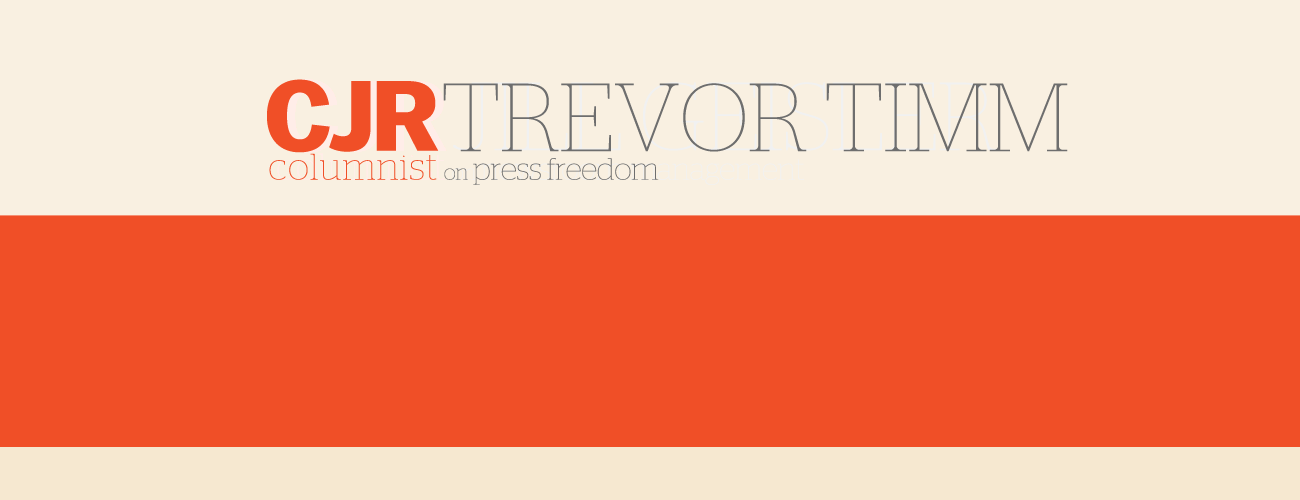Donald Trump shocked a lot of people on Wednesday when he suggested (maybe sarcastically, maybe not?) that he hopes Russia is hacking the emails of Hillary Clinton so they can find the ones she deleted from her private server. There was another phrase, however, he used later in the day that didn’t get the same attention yet was perhaps more disturbing.
While claiming he didn’t have anything to do with the hacking of his political enemies at the DNC, he said: “I wish I had that power, man, that would be power.”
As Vox’s Tim Lee first argued on Wednesday, it is a cogent reminder that as president, Trump would preside over the largest surveillance apparatus in the world, the National Security Agency, and there are few safeguards in place that would prevent him from turning it on anyone he wishes–his political enemies or even journalists.
This really gets at the crux of why civil libertarians have been arguing for years that the NSA has to be significantly curtailed. Even if you believe that the Obama administration is 100 percent trustworthy and no one at the NSA under his watch has abused the agency’s vast spying powers (which, by the way, evidence refutes), the real danger is the infrastructure in place that would allow some future leader to wreak havoc.
A future leader just like Donald Trump.
In fact, this was the exact scenario that Edward Snowden warned about when he first went public in 2013. Read what Snowden said at the end of the very first interview (emphasis mine) he did with Laura Poitras and Glenn Greenwald at the time.
And the months ahead, the years ahead, it’s only going to get worse until eventually there will be a time where policies will change, because the only thing that restricts the activities of the surveillance state are policy. Even our agreements with other sovereign governments, we consider that to be a stipulation of policy rather than a stipulation of law.
And because of that a new leader will be elected, they’ll flip the switch, say that because of the crisis, because of the dangers that we face in the world, you know, some new and unpredicted threat, we need more authority, we need more power. And there will be nothing the people can do at that point to oppose it. And it will be turn-key tyranny.
It’s not that the NSA is currently keeping tabs on political figures and journalists (that we know of), it’s that with a turn of a key, they could. Snowden was worried about future Trumps.
This scenario should be of particular concern to journalists given the way that Trump and his campaign have treated them with complete disdain and outright hostility any time his actions are questioned. He has notoriously called for the “opening up” of libel laws (which, by the way, is impossible without repealing the First Amendment). He has threatened to sue newspapers that published stories he didn’t like. He has basically called the press scum on a daily basis at his campaign rallies. He has revoked the press passes of more media organizations now than you can count.
Just this week, private security guards at a rally with his vice presidential running mate Mike Pence stopped a Washington Post reporter heading into the event in the general admission line, tried to confiscate his cell phone, had police pat him down, and refused him entry. This Bloomberg report from a month ago is eerily Nixonian in its tenor: “Trump Orders Surrogates to Intensify Criticism of Judge and Journalists”
As Lee noted, “Hopefully if President Trump ever ordered the NSA to hack into the computer systems of domestic opponents or critics, NSA leaders would refuse. But the president has the power not only to choose the NSA director but also to prosecute whistleblowers for leaking classified information. So we shouldn’t be too confident that internal resistance at the NSA would stop him.”
In March, civil liberties lawyer Jennifer Granick laid out several ways a president can use the NSA’s powers while avoiding oversight from Congress or the courts, and even with the modest NSA reform passed by Congress last year, “nothing has changed that will stop a president with a mission.” As Granick notes, when it comes to spying overseas under its vast collections program governed by executive order, the president isn’t required to inform Congress or the Foreign Intelligence Surveillance Act (FISA) courts. During the Bush administration, the NSA merely hid its domestic spying program from the FISA courts that were overseeing it. If the FBI wants to change its “minimization” guidelines it doesn’t have to tell Congress either.
She continues: “Classification continues to get in the way of oversight. There is no punishment for people who violate the law at a president’s behest. And whistleblowers have less, not more, reason to believe they will be protected and not prosecuted if they come forward.”
So just think about Trump’s quote about hacking his political enemies again: “I wish I had that power, man, that would be power.”
If elected, he will.
Disclosure: Snowden is on the board of Freedom of the Press Foundation, where I work.
Trevor Timm is the executive director of Freedom of the Press Foundation, a non-profit organization that supports and defends journalism dedicated to transparency and accountability. He is also a twice-weekly columnist for the Guardian, where he writes about privacy, national security, and the media.

